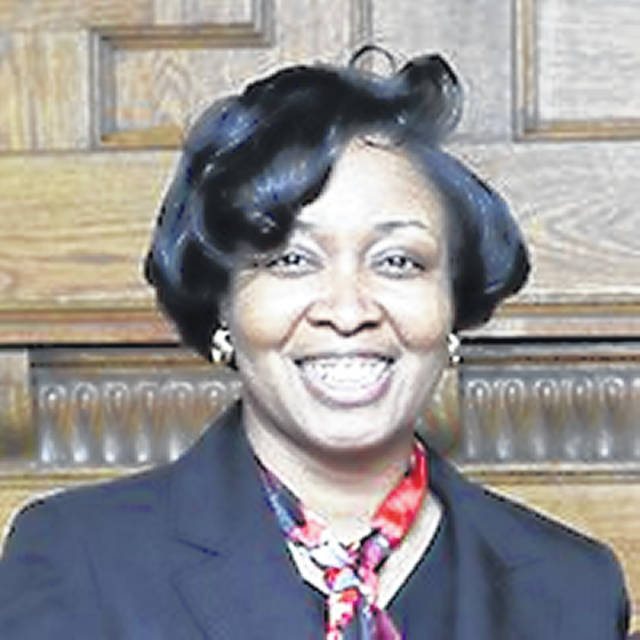“And I know that rules sometimes have to be broken, and sometimes you have to get in good trouble.” — Tennessee Rep. Gloria Johnson
Those who are well versed in civil rights history know that Gloria Johnson, a Democrat who represents Knoxville in the Tennessee House of Representatives, was referring to the social justice activism of the late John Lewis in the above quote. The lifelong philosophy of Lewis was embodied in getting into “good trouble” and “necessary trouble,” where he urged everyone to speak out when we “see something that is not right, not fair, (and) not just.”
Johnson gave her good trouble quote in an NBC News interview after her fellow Democratic Party members, Rep. Justin Jones and Rep. Justin Pearson, were expelled from the state House by Republicans due to being accused of “disorderly behavior” on the House floor.
Jones and Pearson were demanding new gun restrictions after the tragic shooting at The Covenant School in Nashville last month. They were reinstated this week, but racial tensions continue to escalate in the Tennessee General Assembly, as many view racism as the primary factor for their initial expulsion. Jones and Pearson are young Black legislators, and Johnson, who also protested with them, is white. Johnson stated the reason for her surviving her expulsion vote is “pretty obvious.”
Johnson’s indirect reference to Lewis caused me to think more about his concerns for our democracy that he continued to stress before his death in 2020. In the documentary “John Lewis: Good Trouble,” Lewis emphatically stated that we “have to save our democracy,” and the film showed he was heavily focused on the voter ID laws that were implemented in southern states after the Supreme Court struck down Section 4 of the Voting Rights Act in 2013.
Lewis had represented Georgia’s fifth congressional district since 1987, and he was worried that all the hard-fought gains in the struggle to pass voting rights legislation in 1965 were in danger of being rescinded after many southern states moved and shut down polling places and passed ID laws that made it more difficult for people in communities of color to vote. Just as Lewis was greatly disturbed that people could be silenced at the ballot box, he would have been distressed to see the attempts to silence the voices of Jones, Pearson and Johnson by those who disagreed with their stance on gun control.
The fact that Jones and Pearson were particularly singled out as troublemakers and rule-breakers reminded me of how Lewis, along with Dr. Martin Luther King Jr. and other civil rights leaders such as Rev. C.T. Vivian and Rev. Ralph Abernathy, were viewed as outside agitators when they were protesting segregation and Jim Crow laws in the South.
King used the term “outside agitator” in his 1963 “Letter from Birmingham Jail,” urging the white clergy he was addressing to get out of their “narrow, provincial” way of thinking because we all are “tied in a single garment of destiny.” King disputed their position that his nonviolent method of protest was too extreme and used their faith in God as a resilient example: “Was not Jesus an extremist in love — love your enemies, bless them that curse you, pray for them that despitefully use you … Was not Paul an extremist for the gospel of Jesus Christ — I bear in my body the marks of the Lord Jesus. … So the question is not whether we will be extremist but what kind of extremist will we be.”
Jones and Pearson’s tactics of not following the rules of the House chamber by using a bullhorn and speaking without being recognized were also considered extreme by their GOP colleagues and are noted, but Jones and Pearson were speaking on behalf of the three 9-year-olds and three adults who were viciously gunned down at The Covenant School. This was the 13th school shooting in the nation when it took place on March 27, and I believe that Jones, Pearson and Johnson felt the urgent need to speak up in going against General Assembly protocol.
Their actions proved to be effective, as Republican Tennessee Gov. Bill Lee recently signed an executive order that will enforce stricter measures in the state’s background check process for purchasing guns. Lee is also calling for the passage of a “red flag” law that would better identify people unfit to buy firearms.
Lewis would be so proud of this result of getting into good trouble, but we also need a manifestation of the extreme godly love that King demonstrated to heal our racial rifts in politics.
Dr. Jessica A. Johnson is a lecturer in the English department at The Ohio State University-Lima. Reach her at [email protected] or on Twitter @JjSmojc. Her opinion does not necessarily represent the views of The Lima News or its owner, AIM Media.







